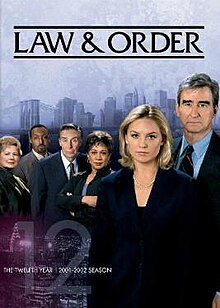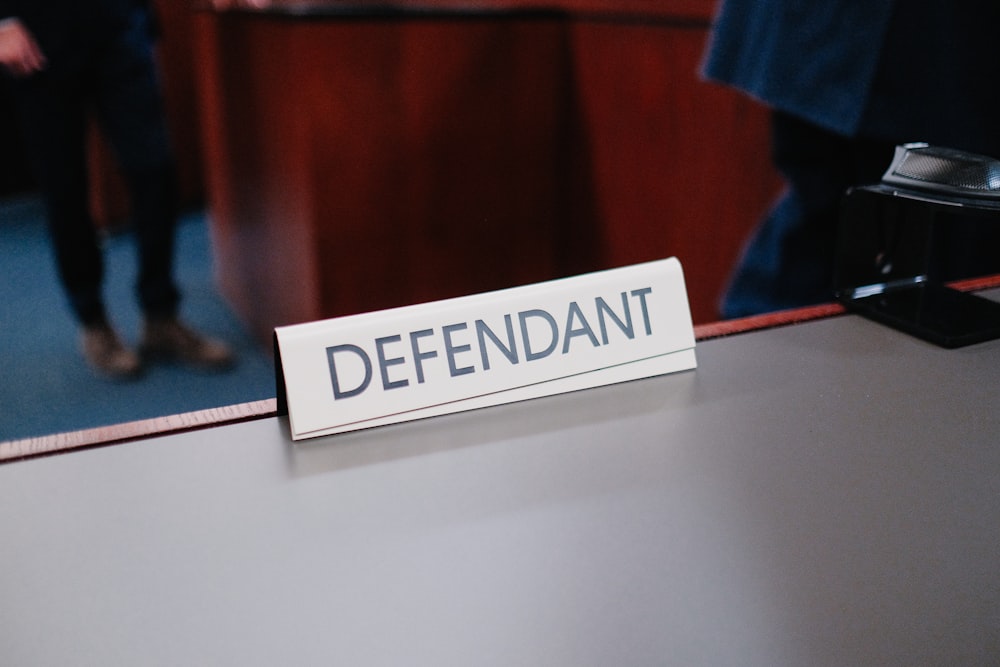Five Basic Constitutional Rights All Americans Should Know If Arrested by Law Enforcement Officers
Five Basic Constitutional Rights All Americans Should Know If Arrested by Law Enforcement Officers
 The Constitution of the United States guarantees specific basic rights to citizens arrested or questioned by law enforcement. Some of the basic rights include the right to have a legal counsel, the right to remain silent, etc. You need to know your rights as enshrined in the Constitution. Below are some specific rights you should know in the face of criminal investigation:
The Constitution of the United States guarantees specific basic rights to citizens arrested or questioned by law enforcement. Some of the basic rights include the right to have a legal counsel, the right to remain silent, etc. You need to know your rights as enshrined in the Constitution. Below are some specific rights you should know in the face of criminal investigation:
The Right to Remain Silent
No person is obliged to talk to police authorities when interrogated concerning a crime. You should NOT give any statement, but politely provide your name and give your driver’s license if requested. The Fifth Amendment as well as the Miranda decision of the Supreme Court protect American Citizens. When you are arrested for a criminal offense, anything that you say to the arresting police authorities is likely to be used against you in court.
The Right to Counsel
This is another important right you should not forget when you face criminal charges. The Sixth Amendment guarantees you the right to counsel by an attorney prior to being questioned by the police. Retaining a lawyer, whether a private attorney or a public defender,if you cannot afford one, is critical prior to making any statement to the police.
The Right to be protected from Unreasonable Searches or Seizure
Unless a police officer shows you proper credentials and a search warrant, you should not allow any form of search to be conducted on your body, property and car. The Fourth Amendment keeps you from unfounded searches and seizures. If a police officer shows you a warrant, you must ask to read the content of the papers before allowing them to conduct search. It is also better to ask the police officer if you may watch as they conduct the search and to call your attorney prior to the search.
The Right to Due Process of Law
This specific right guarantees you to have a fair trial or fair trial and that specific rights and/or privileges shall not be taken away from you.
The Right to Speedy and Public Trial
A speedy public jury trial is guaranteed by the Sixth Amendment, unless you request a bench trial. The right to a speedy trial in the U.S. makes sure that defendants do not spend an unreasonable amount of time in jail prior to a public trial. Infringements of the speedy trial rule may result in a dismissal of the criminal charges.…
Law – Blue-Collar Crimes
Law – Blue-Collar Crimes
 What separates blue-collar crimes from white-collar crimes? The answer lies mostly in societal positions and ranks. Blue-collar crimes are associated with individuals from lower class society, where as the white-collar crimes are committed by those with a higher standing in society.
What separates blue-collar crimes from white-collar crimes? The answer lies mostly in societal positions and ranks. Blue-collar crimes are associated with individuals from lower class society, where as the white-collar crimes are committed by those with a higher standing in society.
A lot of the distinction comes from the range of opportunities presented to the would-be criminal. Every potential criminal is limited by their opportunities in the end – the ease with which a crime can be committed; some have access to a lot more resources that are not theirs but can be taken advantage of. These white-collar criminals have it differently than their blue counterparts. For somebody with no access to huge resources of money and stocks, the crime is automatically rated and categorized with the blue-collar types. In these cases, violence and other cunning is employed where lack of immediate access to funds and such is not available.
Stealing inventory from a workplace and other crimes of similar nature are unlikely to be the blue-collar guys, though, their crimes are much more likely to be reported as violence is more commonplace, and the distress to victims is obvious and measurable. Corporate crime has victims, but the effect is not always recognized, and this is why it’s hard to regulate and truly see the full extent of. In these situations, skill and cunning instead of force is usually preferred, and it gives those in higher societal standing an unfair advantage of being able to commit crimes and get away with it, when the poor person who steals for very different reasons (to eat, to pay rent, etc.) is committing the same or a similar crime for hugely different reasons. This is where the grey area exists.
Police are always being assigned in more numbers to the blue-collar areas of cities to stamp out violence and other crimes, but watchdogs for corporate offices and facilities have very limited involvement and rely on insiders to dish out dirt on companies in exchange for small rewards. This again makes it hard for the same observation to take place, and creates an environment that preys on the less fortunate while ignoring those who steal not to live, but to increase their already-comfortable lifestyles. Until this trend is addressed, the statistics will be skewed and many illegal activities will continue to go on unreported and unaddressed. Is this really what we want in this day and age?…
Zero Tolerance
Zero Tolerance
 Zero tolerance is a law passed by the government stating that any individual under the age of 21 must not drink and drive. Even just a glass of beer prohibits a minor from driving. If he or she still drives after drinking, the minor in question violates the law and therefore subject to punishment. It does not matter whether the minor was physically impaired upon drinking or not, the law clearly spells out that drinking and driving for minors are totally prohibited. That is what you call zero tolerance.
Zero tolerance is a law passed by the government stating that any individual under the age of 21 must not drink and drive. Even just a glass of beer prohibits a minor from driving. If he or she still drives after drinking, the minor in question violates the law and therefore subject to punishment. It does not matter whether the minor was physically impaired upon drinking or not, the law clearly spells out that drinking and driving for minors are totally prohibited. That is what you call zero tolerance.
The government is not to blame for releasing a law such as zero tolerance. Car accidents are becoming more and more rampant so they need to pass a law in order to minimize it. It is considered illegal for minors to even buy alcoholic drinks, much less drive under the influence of it.
There are two components of the zero tolerance law that minors should take note of in case they get charged for it. The first component is called Illegal Per Se Laws. The law prohibits a driver to drive a motor vehicle if he or she has an alcohol concentration on his or her blood at a specific level. For those 21 years old and above, driving with an alcohol content of over point zero eight could spell trouble. If you are a minor, those individuals falling below 21 years of age, even as little as 0.01 or 0.02 alcohol concentration level will mean breaking the zero tolerance law.
The second component is the Administrative Per Se Laws. Through this law, the licensing agency has the right to revoke a driver’s license when found guilty of driving under the influence.
Promoting the zero tolerance law is essential to keep kids off alcohol in such a young age, to protect them from car accidents and to protect other people on the road that they can collide with. For the states that already enacted the law, reports say that nighttime fatal crashes that involves underage drivers already went down by 16%. As for those states who have yet to enforce the zero tolerance law, their fatal crashes went up by one percent.
For the law to be fully effective, information dissemination is very important. How can people follow it if they have no idea that such a law exists? The government is doing their job getting the public informed through education and media attention. Public service announcements are already in place in some states placing it on the radio, television and on newspapers. There are also printed materials being distributed in schools as well as videos that show information on the zero tolerance law.…
Is the Law on Diminished Responsibility Satisfactory?
Is the Law on Diminished Responsibility Satisfactory?
 Voluntary manslaughter, as established by the Homicide Act 1957, is determined by three sections: diminished responsibility, provocation, and suicide pact. These are all known as partial defences meaning that they do not give full acquittal of a sentence they only shorten that of murder to manslaughter. Diminished responsibility is established by Section 2 of the Homicide Act which states that “Where a person kills or is party to a killing of another, he shall not be convicted of murder if he was suffering from such abnormality of mind as substantially impaired his mental responsibility for his acts and omissions in doing or being party to the killing.”
Voluntary manslaughter, as established by the Homicide Act 1957, is determined by three sections: diminished responsibility, provocation, and suicide pact. These are all known as partial defences meaning that they do not give full acquittal of a sentence they only shorten that of murder to manslaughter. Diminished responsibility is established by Section 2 of the Homicide Act which states that “Where a person kills or is party to a killing of another, he shall not be convicted of murder if he was suffering from such abnormality of mind as substantially impaired his mental responsibility for his acts and omissions in doing or being party to the killing.”
It may be used as a defence to murder if the defendant can prove an abnormality of the mind, if, for example, the defendant is an alcoholic, or has a mental condition as in Byrne (1960), where the defendant had uncontrollable sexual desires. The defence is that the defendant does not have the necessary control over their actions, when compared to a reasonable person. Diminished responsibility has been criticised for a number of reasons, the very term ‘Diminished responsibility’ has been criticised by authorities such as the Butler Committee, who say that it is ‘not a medical fact relating to the accused’. There are also many other areas which makes this area of law controversial as I will be discussing.
Abnormality of mind covers a wide range of situations and was describes by Lord Cj Parker in the Court of Appeal in the case of Byrne (1960) as “a state of mind so different from that of ordinary human beings that the reasonable man would term it abnormal.” In Byrne (1960) the defendant who was a sexual psychopath, strangled to death and then mutilated a young woman. He was convicted of murder but the Court of Appeal felt that his condition came within the definition of diminished responsibility and so his conviction of murder was substituted for one of murder.
The main problem was that the medical experts had describes Byrnes condition as amounting to ‘partial insanity’ and the Court of Appeal had approved of this. However, in Seers (1984) it was held that comparisons with insanity are not helpful and should be avoided. In this case the defendant stabbed his estranged wife and claimed diminished responsibility on grounds of chronic reactive depression. The trial judge directed that for the defence to be successful Seers had to be bordering on the insane. He was found to be bordering insane and as a result his so his conviction of murder was substituted for one of murder.
Another problem with the law on diminished responsibility is that diminished Responsibility covers a wide range of mental conditions such as paranoia and epilepsy. Some conditions have been known for years, but some of the conditions have been recognised more recently such as ‘battered woman syndrome’ which was demonstrated in the case of Hobson (1998). In this case the defendant stabbed her alcoholic and abusive partner to death in 1992, during an argument. At the trial she claimed that she had acted in self-defence, and there was a subsidiary issue on provocation. Diminished responsibility was not specifically raised and the defendant was convicted. She appealed on the grounds of diminished responsibility based on battered woman syndrome which previously was not regarded as abnormality of mind until 1994. The Court of Appeal allowed the appeal and ordered a retrial. The problem with this area of law is that some conditions are not regarded as abnormality if mind until later on and so the development on this area of law is very slow which leads to people who have a genuine condition being punished for something they had no control over.
The Abnormality of mind must be caused by one of the matters set out in the brackets within section 2 (1) of the Homicide Act 1957. These are: a condition of arrested or retarded development of mind, any inherent cause, induced by any disease or injury. Inherent cause means one which comes from within the defendant, as opposed to an outside factor and it does not have to be permanent. The important point is that there must be medical evidence given at the trial, of an abnormality of mind arising from one of the specified abnormality of the mind has to be such as to substantially impair the defendant’s responsibility for his actions. In Lloyd (1967) it was held that ‘substantial’ does not mean ‘total’, nor did it mean ‘trivial’ or ‘minimal’. It is something in between and it is up to the jury to decide if the defendant’s mental responsibility was impaired and if so, was it substantially impaired? In seers (1984) the court also considered the phrase ‘substantially impaired’ and …
The Objectives Of Criminal Laws
The Objectives Of Criminal Laws
 Criminal laws were made to make a better system in our government. Through these laws, people may tend to act accordingly and perfectly to what the law will tell them to do. It will help them not just to have discipline but also by exercising these activities, they can have a life that’s free and right. That’s why we should be thankful that certain criminal laws are made, because of these stuffs we can have a better life without danger and harm. Of course, in order to have them effectively working in a town, local or even the whole country, we must first know the objectives of those laws.
Criminal laws were made to make a better system in our government. Through these laws, people may tend to act accordingly and perfectly to what the law will tell them to do. It will help them not just to have discipline but also by exercising these activities, they can have a life that’s free and right. That’s why we should be thankful that certain criminal laws are made, because of these stuffs we can have a better life without danger and harm. Of course, in order to have them effectively working in a town, local or even the whole country, we must first know the objectives of those laws.
Retribution. The criminals commit mistakes and because of that they are obliged to pay for what they have done. They did something bad to other people that lead to hurts and worst death of some, so they need to experience some disadvantages of it. This is the most obvious goal of these laws, to make pay those who need to pay.
Deterrence. There are two kinds of deterrence the personal and general one. This is that goal where they want to show the criminal that he has done something really wrong and that a penalty will be imposed to him, this is the personal category. This will help him to avoid himself from doing this again, it is like these laws will make the people learn from their mistakes. While the general category will be a warning to all people not to do what that criminal has done or else they will also experience the same thing.
Incapacitation. This is one of the most popular goals that these laws have achieved. It was designed to simply keep the criminals away from the society and from other people. Imprisonment, being in jail and even death penalty are just some of the examples of this incapacitation. It became very effective since it also scares people not to certain crimes that will surely bring them to jail because they don’t want to be away from their family and from the free life that they are having right now.
Rehabilitation. This aims in transforming a criminal to admit his mistakes and have that willingness to change and be renewed again. It is very popular for those who are alcoholics that they don’t can control it anymore that they can already try to drive under the influence of alcohols. With these cases, the will be rehabilitated in order to help them control themselves from these addictive stuffs. Also, the help of a DUI attorney in Michigan or in other towns will be needed for some legal matters.
These goals are made in order to check if these criminal laws will be effective or not. This is their way of measuring the results of their actions regarding to these crimes. In line with this, every one should still remember that even without these goals that will remind us about what to do or not, let’s still all be good to one another and never commit crimes.…
Does Your Roof Need Repairing? Check Out This Guide!
Unfortunately, you can’t trust roofing contractors to provide the best work and price. If you need to get the job done correctly, you have to figure Remodel Kitchen out what goes into doing roofing properly. The following article will teach you everything you need to know to tackle that roof repair.
Always be sure that you’re safe when you have to do any work on your roof. Don’t try to fix a leaking roof, for instance, while it is still storming outside. This is very dangerous. Therefore, if you have a leak while it’s raining, put a bucket down until the storm passes. Once it does, you can then get on top of your roof to fix the issue.
Always wear rubber-soled boots when working on your roof. Even on a dry day, you need a proper grip. It can be physically challenging to perform roof repairs.
Make sure that your grass is cut before the project begins. This way, if nails fall on the ground, they’ll be much easier to find. Your roofer may use a metal detector to locate lost nails, and this job will also go faster if your grass is freshly trimmed.
There are some questions you need to ask the roofer before you hire him. Ask about the number of nails that will be used for each shingle. Typically, you would want more than three. Ask about their policies and make sure you are happy with the answers you receive. If not, look somewhere else.
When selecting a roofer, ask loved ones for their experiences and recommendations. Ask others if they’re pleased with their work, with the overall quality of the chosen materials, and if the costs were fair. Ask as many questions as you can to get the best possible repair for your money.
As this article said in the beginning, it’s very important to learn what you can about getting a roof worked on correctly. This will help you make the most of the money you spend. Put the above tips to good use and your roof will look great for less.…
Miranda Rights Under Recent Supreme Court Cases
Miranda Rights Under Recent Supreme Court Cases
 In a close 5-4 decision, the United States Supreme Court has just released an important legal decision and update on one of the most recognized cases in U.S. legal history, Miranda v Arizona. As any follower of police or lawyer shows knows, the Miranda case is known for its inception of Miranda rights, those “right to remain silent” quotes that police officers must inform you of when you are arrested or questioned while under arrest. Even the most casual observer of the law has heard of Miranda, and most of us know that under it, we are not obligated to answer any questions from an arresting officer. Miranda was a landmark case in supporting the Constitutional 5th Amendment right against self-incrimination. No person can be forced to answer questions that may incriminate themselves, and no person can be interrogated further by police once they have invoked their right to remain silent. The U.S. Supreme Court’s decision on June 1st, 2010 could change the way Miranda rights are used in the court room and during criminal arrests in the future.
In a close 5-4 decision, the United States Supreme Court has just released an important legal decision and update on one of the most recognized cases in U.S. legal history, Miranda v Arizona. As any follower of police or lawyer shows knows, the Miranda case is known for its inception of Miranda rights, those “right to remain silent” quotes that police officers must inform you of when you are arrested or questioned while under arrest. Even the most casual observer of the law has heard of Miranda, and most of us know that under it, we are not obligated to answer any questions from an arresting officer. Miranda was a landmark case in supporting the Constitutional 5th Amendment right against self-incrimination. No person can be forced to answer questions that may incriminate themselves, and no person can be interrogated further by police once they have invoked their right to remain silent. The U.S. Supreme Court’s decision on June 1st, 2010 could change the way Miranda rights are used in the court room and during criminal arrests in the future.
In the original Miranda v. Arizona case, the defendant Ernesto Miranda signed a confession when the evidence showed that he did not know he had the right to remain silent or have an attorney present during questioning. The Court ruled in that case that, essentially, the police had bullied Miranda into the confession when they realized he didn’t know he had a right to remain silent. The Court’s opinion held that this right would be useless if the police did not inform a suspect of that right to refuse to answer questions or led him to believe he did not have such a right. Ultimately, a person accused of a crime has a constitutional right against self-incrimination, and the Miranda court decided that the confession the interrogating police officers got from Miranda due to his ignorance of these rights was unconstitutional. Incidentally, although Miranda’s confession was thrown out because of this, he was ultimately later convicted in a new trial. The Miranda court’s underlying reasoning and decision was later reviewed again in 2000 in Dickerson v. United States, and affirmed.
In this recent court case Berghuis v. Thompkins, a new wrinkle was added to the rights of a criminal defendant that were discussed in the Miranda case. In this case, the Court held that simply refusing to answer questions does not, by itself, require that the police immediately give up their questioning. In the majority opinion, Justice Kennedy stated that a criminal suspect who wants to invoke their Miranda right not to be questioned must do it unambiguously, simply remaining silent for certain questions, while answering others was not enough the Court said. Going forward, it appears that under the majority decision a criminal suspect must be perhaps more clear if they truly wish to invoke their right to remain silent. The dissent protested that under this legal holding suspects in a crime must now unambiguously invoke that right, which (counter-intuitively) would require them to speak to do so. While it is not yet clear how those fears will play out in future criminal cases, this new decision has at least a mild limiting effect on the rights of criminal suspects under Miranda to be able to avoid their answers being used against them if they choose to answer any questions.…







